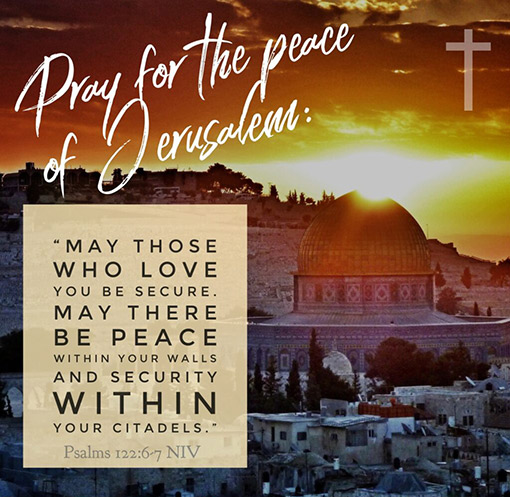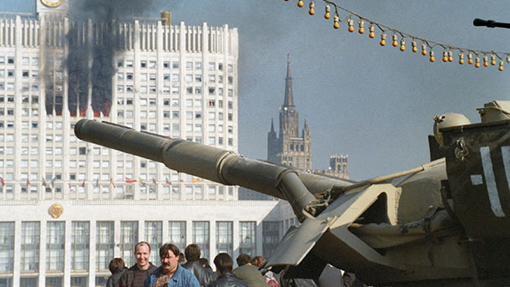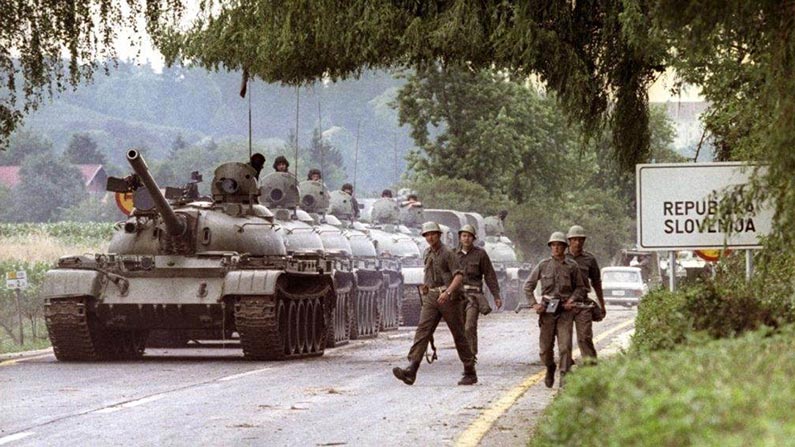Teachable Moments in Times of War and Conflict
The horrific terrorist attacks in Israel October 7 were shocking, and even more so because it was perpetrated on Jewish people – including women, children, some with disabilities – kidnapped and murdered simply because of who they are and what they believe. Pure evil.
It’s also a tragically stark reminder that life can change in the blink of an eye. Our day-to-day lives as disciples of Jesus Christ are lived against the backdrop of God’s unfolding purpose for His creation. Paul’s exhortation is to “Be very careful, then, how you live—not as unwise but as wise, making the most of every opportunity, because the days are evil.” — Ephesians 5:15-16 NIV
The call to “pray for the peace of Jerusalem” is not simply theoretical nor theological, especially in times like this. It’s something to do personally and in our churches.
Beyond this, we are to do more than just sing and talk about God’s call to the nations. We still have the Gospel to proclaim, as we are commanded to make disciples of every tongue, tribe, people and language.

Personal Experience
As I wrote this, our oldest son was in Israel with a group from his church, sheltering in place in Jerusalem. (He has since returned safely, praise God!) This reminded me on a personal level of two times that my mission trips were interrupted by the outbreak of war and conflict. Once was in October 1993, when I arrived in Moscow in the middle of the attempted overthrow of Boris Yeltsin. The Russian white house was still smoldering when I arrived for a major church planting outreach in multiple Russian cities with 71 other people from across the U.S. It was a powerful time of seeing the Lord at work and experiencing His “peace that passes all understanding”! — Philippians 4:7

Moscow, 1993
The other time was in June, 1991. I arrived in Zagreb, Croatia on June 26, 1991, the day the Yugoslav war began. I remember it well, even after 32 years. I wrote about those days in my book, Igniting a Passion for Missions.
“As I landed in Zagreb, the capital of the Yugoslav Republic of Croatia, I walked slowly down the stairs onto the tarmac, welcoming the chance to stretch my legs after an exhausting 24 hours of air travel. With the flights over, there were plenty of new things to take in during those first steps down the stairs onto Croatian soil. The beautiful mountains outside Zagreb were still visible as dusk approached, and I had seen glimpses of the city from the top of the stairway. But as I walked toward the terminal, something else grabbed my attention. Loudspeakers blared and people listened intently to the words being spoken. The man was obviously speaking with emotion and conviction. His words, punctuated with enthusiastic applause, echoed through the baggage claim area and followed me outside as I began to look for my hosts. Outside, taxis sat still—doors open, cabbies listening intently to the blending of car radios and the airport loudspeakers, oblivious to emerging passengers in need of transportation. A stirring national anthem brought the broadcast to a close as I made connection with my host, a local Yugoslav pastor. As we drove away from the airport, with luggage stowed and fatigue starting to set in, my new friend began to fill in the details. There was no mistaking that I was witnessing an historic moment for this part of the world. I had already guessed this was all somehow connected with the U.S. State Department travel advisory issued in the days before I left.
There had been unrest and rumors of the impending breakup of Yugoslavia—a country struggling with centuries old ethnic unrest. What I had heard, in those first moments in the country, was the voice of neighboring Slovenia’s President Milan Kucan declaring independence from the rest of Yugoslavia. By sunset on June 26, Croatia took the same courageous step, and the breakup of Yugoslavia had begun.
That night I knew very little about the complex cultural, ethnic and historical issues that precipitated those pivotal days. All I knew was that I was in the early days of a war, and I had a front row seat on a mountaintop outside Zagreb…My front row seat to a war became an unforgettable experience of God’s presence and protection. It also taught me other unexpected lessons about the vital link between the Great Commission and the local congregation.” *
*Igniting a Passion for Missions, pp. 22-23

Slovenia independence, June 1991
Engage in God’s Priorities!
Jesus’ public ministry was filled with teachable moments, often shocking His disciples (and today’s readers) with rich spiritual truth and application for their lives from events large and small. As we pray for the people of Israel in the midst of the war in Israel, as well as the war in Ukraine, this is also a teachable moment here for us. Western Christianity at its worst can become self-absorbed and complacent. Keith Green, a pioneer in contemporary Christian music a generation ago, wrote a song calling this “being asleep in the light.”
This is one of those times that the Lord is calling us to be awake and engaged in His priorities for our lives and our churches: being people of prayer, people of the Word, loving and serving one another in word and deed. High among those things is to be connecting our lives to Gods call to the nations, which is rooted in the reality of His death and resurrection, and His ultimate victory over sin, death, and God’s Adversary, Satan. Our call is to proclaim the Good news, remembering that evangelism is the church GROWING where it is, while global mission is the church GOING where it isn’t.
How is your life connected to the nations? Are you a PRAY-er, a SEND-er, a GIVER, a GO-er? This time, in this season, say yes and take a step of faith that you’ve not taken before!

To God be the Glory,
Rev. Bill Moberly, Founder and Director of ALWM
Co-Founder and Editor of Celebrating Global Mission






